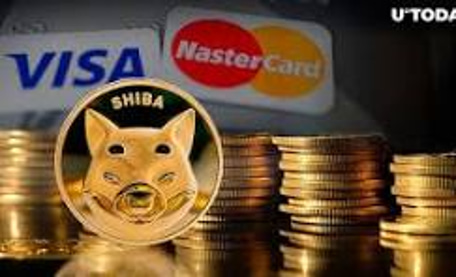Course outline 116
Course outline main objectives
What is the differences between Coins VS Token omics?
How do I buy SHIB?
How can I trade SHIB?
How do I change Wallet Addresses?
How can I swap my wallet Address to different currency?
What should I know about moving wallet addresses?
What are the cost associated with moving my wallet addresses?
How can I open a trust wallet or move my crypto to a secure DEFI?
What is a DeFi Wallet?
Are DeFi wallets secure or cold storage?
Video clips on different activity to show what you need to know to help you through the crypto maze. Help make you extremely successful.


Coins VS Tokens Cryptocurrencies Breakdown
Coins: The Native Currencies of Blockchains
A coin is a digital currency that operates on its own native blockchain. Think of it like a country’s official currency—it has its own economic rules, its own infrastructure, and it can function independently. Examples include:
Bitcoin (BTC) – runs on the Bitcoin blockchain
Ethereum (ETH) – runs on the Ethereum blockchain
Litecoin (LTC) – runs on the Litecoin blockchain
SHIB, while commonly referred to as a coin, is actually a token, because it does not have its own blockchain (it runs on Ethereum).
2. Tokenomics: The Economics of Tokens
Tokenomics is short for “token economics”—it refers to the rules, incentives, supply mechanics, and overall structure that determine how a cryptocurrency functions within its ecosystem.
Tokenomics answers questions like:
How many tokens exist now, and what’s the maximum supply?
How are new tokens introduced or burned (destroyed)?
What drives demand for this token?
Are there incentives to hold, trade, or use it?
Is the supply inflationary, deflationary, or fixed?
For SHIB, Tokenomics includes:
Initial supply of 1 quadrillion
Burn mechanisms (like SHIB burns from community projects or partners like Binance)
Circulating supply vs locked or burned supply
The role of SHIB in decentralized ecosystems (like the SHIB 5050 raffle, where it becomes a use-case currency)
Understanding the difference between a coin and Tokenomics helps users:
Grasp how SHIB operates within the Ethereum network
Appreciate why SHIB isn’t just a meme, but part of a growing, use-based ecosystem
See the long-term vision of SHIB’s community-driven burn model, which aims to increase scarcity & increasing value right now.






How do I Buy SHIB?
Buying SHIB (Shiba Inu) is easier than ever, but depending on your country and exchange of choice, the process may vary slightly. Here’s a universal step-by-step guide:
Step 1: Choose a Cryptocurrency Exchange
SHIB is available on most major centralized and decentralized exchanges, such as:
Binance
ByBit
BitMart
Crypto.com
HTX
Wealth Simple
Coinbase
KuCoin
Kraken
Uniswap (decentralized)
ShibaSwap (official DEX for SHIB ecosystem)
Tip: Choose an exchange that supports your local currency or bank transfers to reduce conversion fees.
Step 2: Create and Verify Your Account
Most centralized exchanges require:
Email or phone verification
KYC (Know Your Customer): Government-issued ID, selfie, sometimes proof of address
Two-Factor Authentication (2FA) for security
Be prepared:
Verification can take anywhere from a few minutes to a few days
Some decentralized platforms like Uniswap do not require KYC, but you’ll need a crypto wallet (like MetaMask)
Step 3: Deposit Funds
Options include:
Bank transfer
Debit/credit card
Apple Pay / Google Pay (in supported regions)
Crypto deposit (send crypto from another wallet)
Step 4: Buy SHIB
Go to the Buy/Sell section of the exchange
Choose SHIB and the amount you want to purchase
Confirm the transaction
Tip: If SHIB isn’t available directly with your fiat currency, you may need to first buy USDT or ETH, then swap it for SHIB.
Step 5: Store Your SHIB Safely
You can leave SHIB on the exchange (not recommended long-term) or move it to a private wallet:
Software wallets: MetaMask, Trust Wallet
Hardware wallets: Ledger, Trezor
Decentralized storage: ShibaSwap-compatible wallets




How to build my cryptocurrency?
Service title
Write a short text about your service. Highlight key benefits for potential clients.
Service title
Write a short text about your service. Highlight key benefits for potential clients.
Write a short text about your service. Highlight key benefits for potential clients.
Service title




How to I trade my SHIB?
Trading SHIB
Wealth
support@shibworldwide.com
1+403-402-3993
© 2025. All rights reserved.
Shiba Inu Token (SHIB) NOT LEGAL TENDER
Completely Decentralized (Zero employees)
Raffle has zero restrictions.
The People's currency
SHIB is Community Currency
